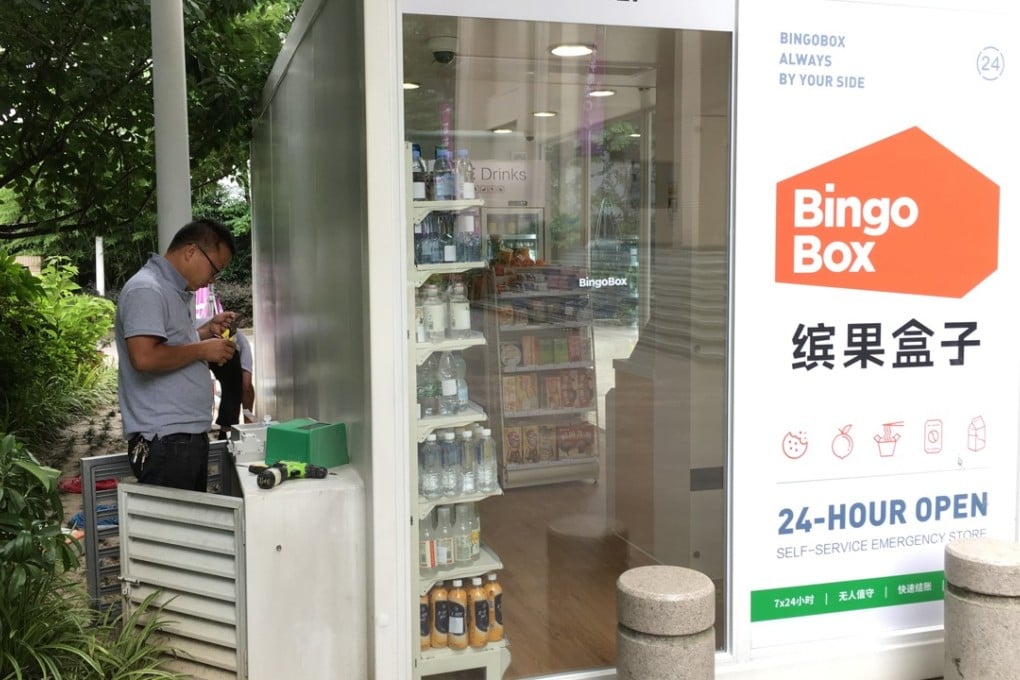China embraces Amazon’s unmanned store concept as part of country’s efforts to redefine retail experience

No queues and no checkout. Just grab what you need and go.
As much as it may sound like shoplifting, this is the future of grocery shopping, first envisioned by Amazon. But Chinese companies may have jumped ahead, beating the US online retail giant in turning the concept into reality.
Enabled by mobile payment and supported by an array of advanced technologies including facial recognition and voice recognition, unmanned convenience stores have become the latest trend in China’s ever changing tech scene.
Little-known tech start-up BingoBox, based in China’s Guangdong province, has made its name in China this summer by opening its first unmanned convenience store in Shanghai, where 25 million urban dwellers depend heavily on 24-hour stores for convenience.
In a container-like structure stocked with products supplied by French supermarket chain Auchan, BingoBox lets customers go shopping after they are admitted via facial recognition to the 10- square metre area. The security measures ensure that those inside the store are customers and not shoplifters who entered illegally.
Sensors and cameras scattered throughout the area identify items in the shoppers’ carts and automatically charge the customer’s WeChat Wallet, a smartphone-enabled mobile payment run by Tencent, as they walk out the door.